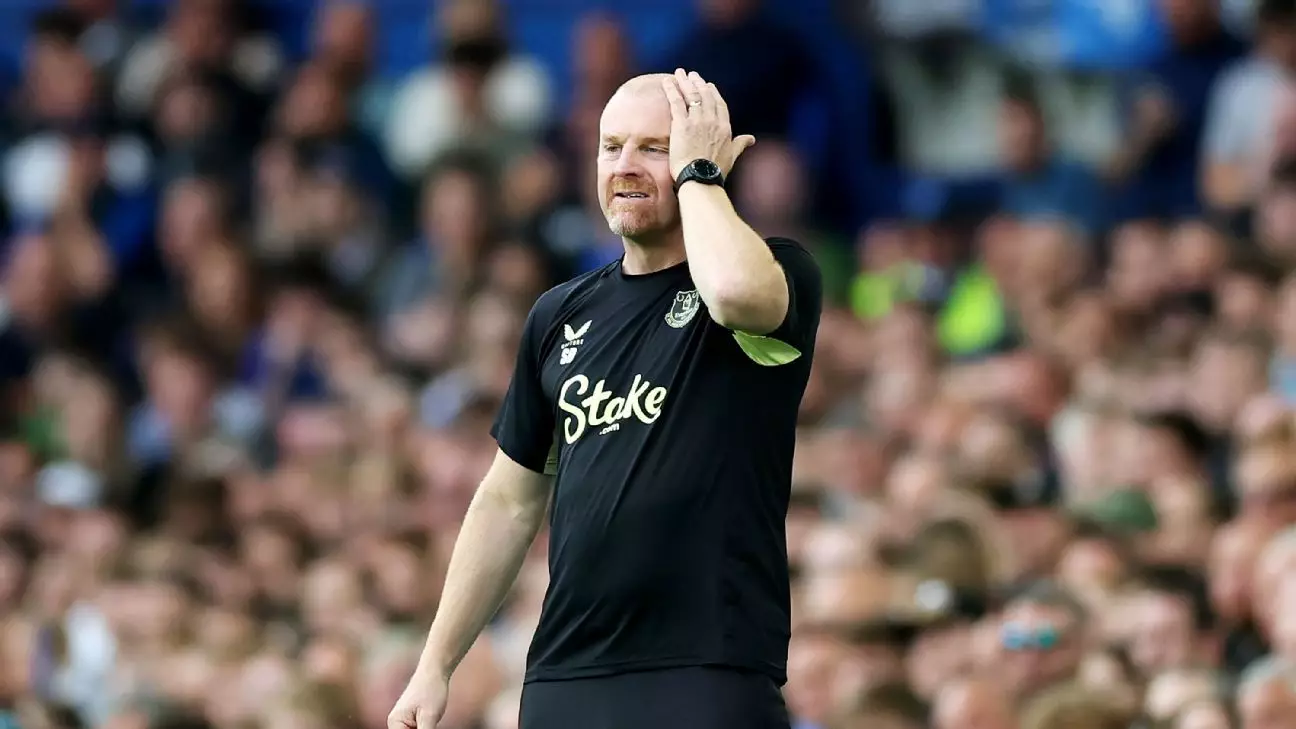Everton Football Club, with its storied history and dedicated fanbase, now finds itself at a crossroads. The potential acquisition by the Friedkin Group, a Texas-based consortium best known for owning AS Roma, offers a glimmer of hope after a tumultuous stretch characterized by uncertainty on and off the pitch. Manager Sean Dyche has articulated the club’s current plight, acknowledging the unrest afflicting Everton and its supporters. Dyche’s remarks signal not only a yearning for stability but also an urgent need to pivot the club back to a path of competitive success.
While the takeover represents a significant development, Dyche has been clear to temper expectations. The managerial perspective suggests that while early indicators may be encouraging, fundamental changes within the structure and culture of the club are essential for lasting improvement. With the club’s legacy of achievement, notably their nine titles in the Premier League, the urgency for a reliable leadership structure cannot be understated. This heightened sense of instability has undoubtedly seeped into the fans’ sentiments, feeding an anxiety that has been palpable, particularly following a disastrous start to the 2024-25 season.
Everton’s on-field struggles have mirrored their off-field tribulations. Despite an astonishing expenditure of around £800 million (approximately $1 billion) on player acquisitions and wages over recent seasons, the team has found itself languishing at the bottom of the Premier League table. The critical failure to translate financial investment into tangible success raises questions about player management, strategy, and overall club ethos. Only goal difference separates them from the bottom of the league, and the prospect of relegation looms large.
This scenario starkly reflects the harsh realities of modern football, where financial clout does not guarantee performance outcomes. Everton’s precarious standing forces fans to ponder the implications of further financial mismanagement and team underperformance. In previous seasons, Dyche orchestrated heroic escapes from relegation, leading the team to safety despite significant point deductions for financial breaches. However, with an ever-tightening relegation battle and continuous off-field distractions, repeating such feats becomes increasingly challenging.
Cautsious Optimism Among the Fanbase
As with any major shift in club ownership, supporters have expressed a blend of excitement and skepticism. The Friedkin Group’s background in diverse industries — including automotive and entertainment — elicits hopes of innovative changes at Everton, advancing the club’s competitive edge. However, with past failed takeover attempts, including a disrupted negotiation with 777 Partners and shifting interests from other parties, there exists a palpable hesitance among the fanbase.
Dyche has aptly portrayed the landscape: until the ownership situation stabilizes, his focus must remain steadfastly on the footballing aspects. The specter of relegation threatens to overshadow any potential benefits that new ownership may bring. In the eyes of many supporters, success on the pitch is the best way to reassure fans amidst uncertainty.
Yet, amid these struggles, Dyche remains committed to fostering a competitive spirit among his players. He emphasized the importance of hard work and dedication, reinforcing a culture of resilience — qualities that could prove vital as the season unfolds. Whether this resolve will translate into positive results remains uncertain, but it embodies the collective hope of all those attached to the club.
In a broader context, Everton stands as a case study within the evolving landscape of football and ownership dynamics. For clubs facing financial challenges, the interplay between stable management and on-field success represents a pivotal area of concern. Everton’s journey ahead will be closely monitored, serving as a barometer for how clubs can either triumph or falter amidst uncertainty.
The upcoming weeks will be consequential as Dyche and his staff strive to rectify the team’s dismal start and secure that elusive first league win. The prospect of new ownership may inject fresh energy into the club, but the realities of sustaining performance requires a long-term vision. For Evertonians, the tension between caution and hope continues as the turbulence of their club’s destiny carries on.

